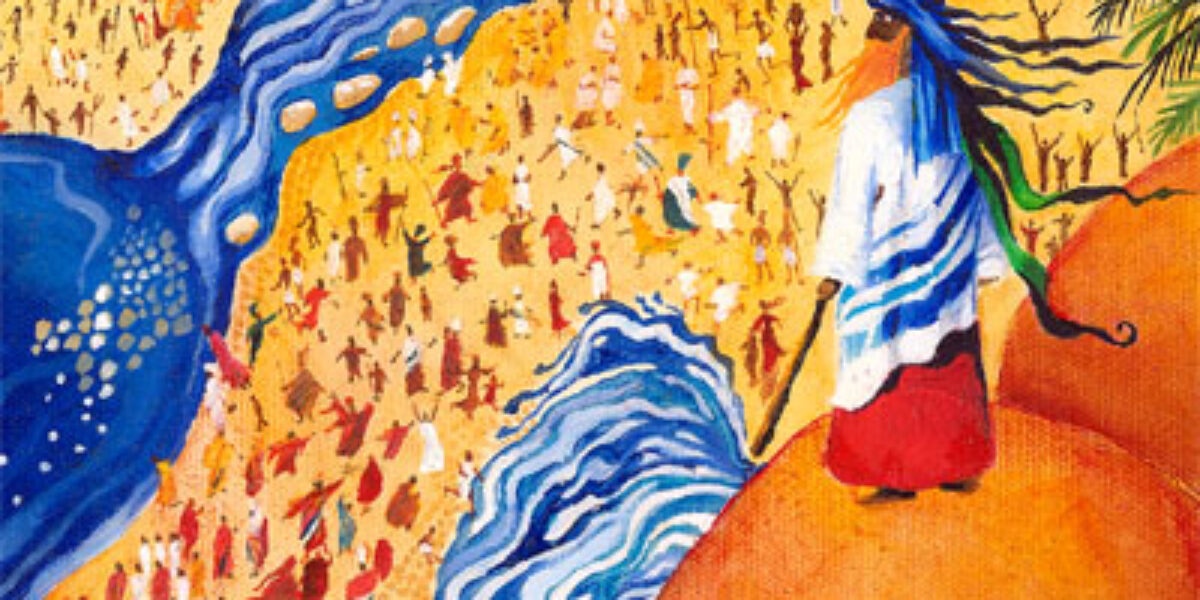Chukkat – Numbers 19:1-22:1 (Jun. 18/19)
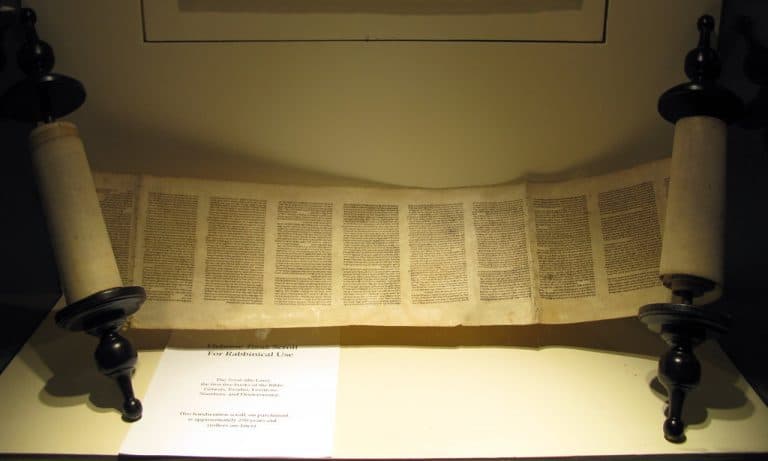
As the Torah Turns
Rabbi Lader’s Weekly D’var Torah
Chukkat – Numbers 19:1-22:1 (Jun. 18/19)
Can You Spot the Difference??? Our Torah portion this week is Chukkat – Numbers 19:1-22:1 and includes God’s admonition of Moses after the people cry out, yet again, from thirst. This has happened before, where the Israelites cry out to Moses — how is this time different from all other times? Example #1 — The Israelites have just left Egypt and are standing at the shores of the Reed Sea — with Pharaoh’s army close at their heels. The people cry out to God and grumble to Moses, and what does Moses do?
As Pharaoh drew near, the Israelites caught sight of the Egyptians advancing upon them. Greatly frightened, the Israelites cried out to the Eternal. And they said to Moses, “Was it for want of graves in Egypt that you brought us to die in the wilderness? What have you done to us, taking us out of Egypt? Is this not the very thing we told you in Egypt, saying, ‘Let us be, and we will serve the Egyptians, for it is better for us to serve the Egyptians than to die in the wilderness’?” But Moses said to the people, “Have no fear! Stand by, and witness the deliverance which the Eternal will work for you today; for the Egyptians whom you see today you will never see again. (Ex. 14:10-13)
Example #2 — Right on the heels of leaving the Reed Sea, the Israelites travel… and find no water. They cry out to Moses, and Moses cries out to God, and what does Moses do?
Then Moses caused Israel to set out from the Sea of Reeds. They went on into the wilderness of Shur; they traveled three days in the wilderness and found no water. They came to Marah, but they could not drink the water of Marah because it was bitter; that is why it was named Marah. And the people grumbled against Moses, saying, “What shall we drink?” So he cried out to the Eternal, and the Eternal showed him a piece of wood; he threw it into the water and the water became sweet. There God made for them a fixed rule, and there God put them to the test. God said, “If you will heed the Eternal your God diligently, doing what is upright in God’s sight, giving ear to God’s commandments and keeping all God’s laws, then I will not bring upon you any of the diseases that I brought upon the Egyptians, for I the Eternal am your healer.” And they came to Elim, where there were twelve springs of water and seventy palm trees; and they encamped there beside the water. (Ex. 15:22-27)
Example #3 — Traveling again, the Israelites cry out for water… and Moses receives instructions from God:
From the wilderness of Seen the whole Israelite community continued by stages as the Eternal would command. They encamped at Rephidim, and there was no water for the people to drink. The people quarreled with Moses. “Give us water to drink,” they said; and Moses replied to them, “Why do you quarrel with me? Why do you try the Eternal?” But the people thirsted there for water; and the people grumbled against Moses and said, “Why did you bring us up from Egypt, to kill us and our children and livestock with thirst?” Moses cried out to the Eternal, saying, “What shall I do with this people? Before long they will be stoning me!” Then the Eternal said to Moses, “Pass before the people; take with you some of the elders of Israel, and take along the rod with which you struck the Nile, and set out. I will be standing there before you on the rock at Horeb. Strike the rock and water will issue from it, and the people will drink.” And Moses did so in the sight of the elders of Israel.
Example #4 — Fast-forward close to 40 years, and this week’s Torah portion; the people grumble for water and Moses receives instructions from God. What was Moses’ mistake?
The Israelites arrived in a body at the wilderness of Zin on the first new moon, and the people stayed at Kadesh. Miriam died there and was buried there. The community was without water, and they joined against Moses and Aaron. The people quarreled with Moses, saying, “If only we had perished when our brothers perished at the instance of the Eternal! Why have you brought the Eternal’s congregation into this wilderness for us and our beasts to die there? Why did you make us leave Egypt to bring us to this wretched place, a place with no grain or figs or vines or pomegranates? There is not even water to drink!” Moses and Aaron came away from the congregation to the entrance of the Tent of Meeting, and fell on their faces. The Presence of the Eternal appeared to them, and the Eternal spoke to Moses, saying, “You and your brother Aaron take the rod and assemble the community, and before their very eyes order the rock to yield its water. Thus you shall produce water for them from the rock and provide drink for the congregation and their beasts.” Moses took the rod from before the Eternal, as God had commanded him. Moses and Aaron assembled the congregation in front of the rock; and he said to them, “Listen, you rebels, shall we get water for you out of this rock?” And Moses raised his hand and struck the rock twice with his rod. Out came copious water, and the community and their beasts drank. But the Eternal said to Moses and Aaron, “Because you did not trust Me enough to affirm My sanctity in the sight of the Israelite people, therefore you shall not lead this congregation into the land that I have given them.” (Num. 20:1-12)
Can you spot the difference? What does God mean when God says to Moses: “Because you did not trust Me enough to affirm My sanctity in the sight of the Israelite people”? Is God that upset because Moses struck the rock and didn’t speak to the rock? Would Moses’ speaking to the rock have affirmed God’s sanctity in the sight of the people?
Perhaps it wasn’t what Moses did — but what Moses said? In front of the people, standing next to Aaron, Moses holds his staff and says, “… shall we get water for you out of this rock?” Moses says “we” — not the “Royal We” – but the Aaron and I “we”… as if it is Aaron and Moses who are bringing the water out of the rock… and in saying this, Moses diminishes God’s holiness before the people. Moses has been leading this people for forty years… Well, actually, this people is now the next generation. What God has realized is that this next generation is ready for a new and more patient leadership… and Moses will come to realize that as well. What a difference a word makes!
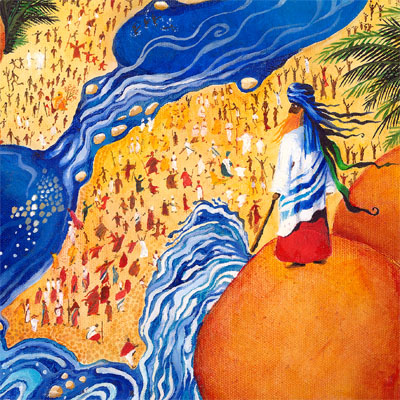
From Previous Weeks

Korach – Numbers 16:1-18:32 (Jun. 11/12)
…great leaders like Moses do not direct attention to themselves but focus our gaze upwards…
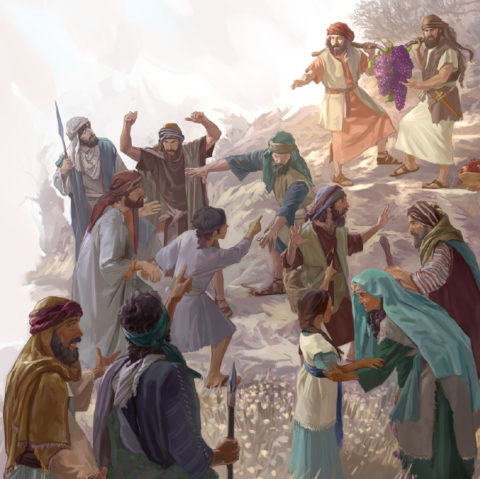
Shelach Lecha – Numbers 13:1-15:41 (Jun. 4/5)
[T]he twelve men were not sent to spy…
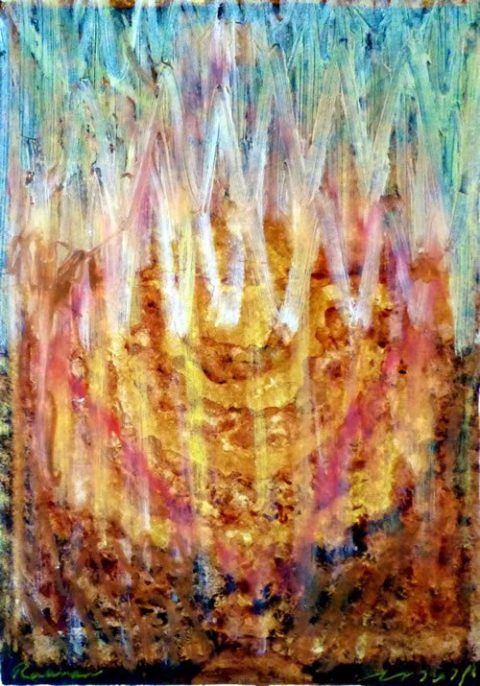
B’ha’alotecha – Num. 8:1-12:16 (May 28/29)
To break the silence and step up to light the call for change.

Sefer Bemidbar – Num. 1:1-4:20 (May 14/15)
God commanded Moses to call each man by name…

